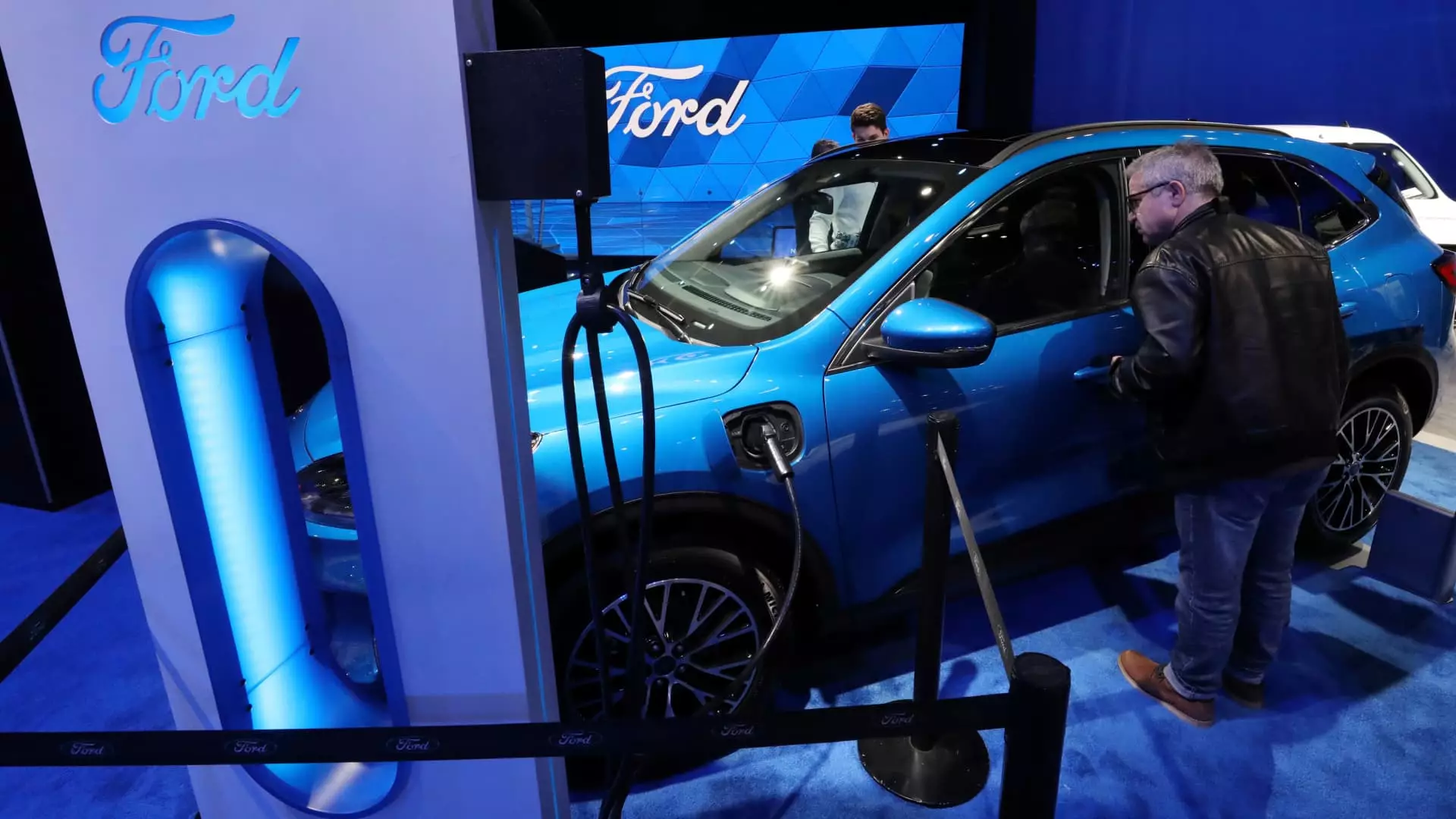As the automotive industry continues to shift towards electric vehicles (EVs), Ford Motor Company has experienced delays in production of its all-electric large SUV and pickup truck. The Detroit automaker is pushing back the production timelines for these vehicles in favor of offering hybrid options across its entire North American lineup by 2030. This decision reflects the challenges faced by Ford and the industry as a whole in adapting to consumer demand and technological advancements in the EV market.
Ford’s decision to delay the production of its all-electric SUV and pickup truck comes as a response to the slower-than-expected adoption of EVs and the high production costs associated with these vehicles. The company had initially planned to invest $12 billion in new EVs, but market conditions and profitability challenges led to a shift in strategy. Ford has now postponed the production of the three-row SUV to 2027 from 2025, and the next-generation pickup to 2026 from late 2025.
Despite being the second best-selling EV brand in the U.S. after Tesla, Ford ranks third overall in EV sales, trailing behind both Tesla and Hyundai (including Kia and Genesis brands). This competitive landscape underscores the need for Ford to reevaluate its EV strategy and focus on scaling a profitable EV business. The decision to delay production allows Ford to capitalize on emerging battery technology and consumer preferences for three-row EVs.
Ford’s move to invest in new plants such as the “BlueOval City” campus in Tennessee highlights the company’s commitment to developing breakthrough, next-generation EVs. These vehicles will be built from the ground up and fully software enabled, offering customers improved digital experiences and a range of potential services. Ford is also continuing construction of battery plants in Michigan, Tennessee, and Kentucky to support its EV production goals.
In the first quarter of 2024, Ford saw an 86% increase in electric vehicle sales compared to the previous year, marking a positive trend in its EV business. Hybrid sales also rose by 42%, while traditional internal combustion engine vehicle sales increased by 2.6%. Despite these gains, Ford’s “Model e” electric vehicle business reported a loss of $4.7 billion in 2023, with expectations of further losses in 2024. This financial outlook underscores the challenges faced by Ford in transitioning to a more EV-focused strategy.
Ford’s decision to delay production of its all-electric large SUV and pickup truck reflects the evolving nature of the automotive industry and the challenges associated with transitioning to EVs. While the company remains committed to investing in EVs and scaling a profitable business, the shift in strategy underscores the need for careful planning and adaptation to market conditions. By focusing on emerging technologies and consumer preferences, Ford aims to position itself as a key player in the future of electric mobility.

Leave a Reply